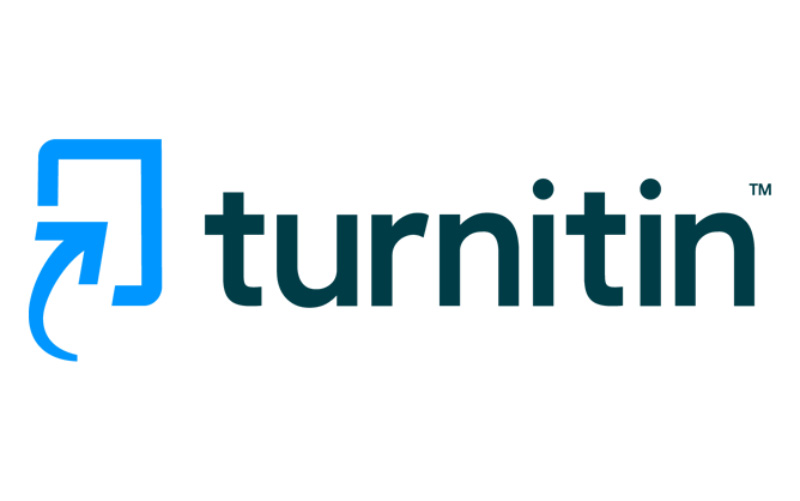Kebijakan Kebijakan Penghapusan Piutang Macet UMKM sebagai Implementasi Konsep Good Governance
Kebijakan Penghapusan Piutang Macet UMKM sebagai Implementasi Konsep Good Governance
Abstract
President Prabowo Subianto as President of Indonesia for the period 2024 - 2029 made his latest policy by ratifying Government Regulation Number 47 of 2024 concerning the Elimination of Bad Debts for Micro, Small and Medium Enterprises. The policy is an effort to increase national economic resilience regarding the empowerment of MSMEs and provide easy access to financing for MSMEs, so that in the future it will have an impact on improving the national economy. This study uses a qualitative research method with a descriptive research type. The purpose of this study is to examine and analyze the fulfillment of the concept of good governance in the enactment of the Government Regulation on the Elimination of Bad Debts for MSMEs and the application of good governance principles in making government policies. The results of the study show that the Government Regulation on the Elimination of Bad Debts for MSMEs has met three indicators of Good Governance, namely Strategic Vision, Responsiveness, Consensus Orientation so that it is hoped that the implementation of this Government Regulation can provide benefits to the community, especially MSME actors. The application of the principle of good governance is by implementing all indicators, namely Participation; Rule Of Law; Transparency; Responsiveness; Consensus Orientation; Equity, Efficiency and Effectiveness; Accountability; Strategic Vision. By writing this article, it is expected to provide benefits for academics, society or government in the form of legal understanding and provide scientific contributions along with literature to subsequent authors related to the concept of good governance in the implementation of the PP on the Elimination of Bad Debts for MSMEs. The lack of supporting data is due to the writing material being a new policy formed by the new government. The novelty of the research focuses on the analysis of the principles of good governance in the implementation of the PP policy on the Elimination of Bad Debts for MSMEs as well as in the creation of government policies so that there is novelty in this research.
Keywords: Good Governance, Public Policy, Micro, Small, and Medium Enterprises.
References
Choirulsyah, Darmawan dan Azhar. (2024). Implementasi Etika Administrasi Publik: Langkah Utama Dalam Menciptakan Good Governance Di Indonesia. Jurnal Pemerintahan dan Politik, 9(3).
Erilia, Erika. “Apa Itu Asta Cita Prabowo-Gibran, Program Prioritas & Artinya?”. https://mmc.tirto.id/ documents/2023/10/26/1276-visi-misi-indonesia-maju-2024-final.pdf?x=2676, diakses pada tanggal 14 November 2024.
Gani, Rusnedi Abdul dan Ade Suparman. (2023). Penerapan Prinsip Good Governance dalam Kebijakan Publik di Indonesia (Studi Kasus Pemerintah Daerah Kabupaten Subang). Jurnal WPAJ, 5(1).
Hadjon, Philipus M., dkk. (2010). Tata Kepemerintahan Yang Baik (Good Governance) dalam Korelasinya dengan Hukum Administrasi, Universitas Trisakti, Jakarta.
Handayani, Fitria Andalus dan Mohamad Ichsana Nur. (2019). Implementasi Good Govenance Di Indonesia. Publica: Jurnal Pemikiran Administrasi Negara, 11(1).
Hasriani. (2024). Implementasi Good Governance dalam Penyelenggaraan Pemerintahan di Kelurahan Parangloe Kecamatan Tamalanrea Kota Makassar, Jurnal Publisitas, 10(2).
Kharisma, Bayu. (2014). Good Governance Sebagai Konsep Dan Mengapa Penting Dalam Sektor Publik Dan Swasta (Suatu Pendekatan Ekonomi Kelembagaan). Jurnal Buletin Studi Ekonomi, 19(1).
Lestari, Ratna Ani dan S.Agus Santoso. (2019). Pelayanan Publik Dalam Good Governance. Jurnal Ilmu Sosial dan Ilmu Politik (Juispol), 2(1).
Maryam, Neneng Siti. (2016). Mewujudkan Good Governance Melalui Pelayanan Publik. Jurnal Ilmu Politik dan Komunikasi, 6(1).
Nuraini, S. (2020). Penerapan Etika Administrasi Publik Sebagai Upaya Dalam Mewujudkan Good Governance”, Jurnal Ilmiah Magister Ilmu Administrasi (JMIA), 14(1).
Ipan Nurhidayat. (2023). Prinsip-Prinsip Good Governance Di Indonesia, Journal E-Gov Wiyata, 1(1).
Pietersz, Jemy Jefry. (2017). Prinsip Good Governance Dalam Penyalahgunaan Wewenang, Jurnal SASI, 23(2).
Ramdhan, Ruslan dan Nur Afni. (2024). Konsep Good Governance Dalam Perspektif Pelayanan Publik: Sebuah Tinjauan Literatur, Jurnal Administrasi Publik, 6(1).
Rohman, Abd, Yayang Santrian Hanafi, dan Willy Tri Hadianto. (2019). Penerapan Prinsip-Prinsip Good Governance Dalam Meningkatkan Kualitas Pelayanan Publik, Jurnal Reformasi, 9(2).
Saputra, Nopriadi dan Riant Nugroho. (2021). Good Governance Pada Pelayanan Publik: Sebuah Usulan Model Pengembangan Berbasis Prilaku. Jurnal MSDA, 9(1).
Supriadi, Yudhi. (2015). Pelaksanaan Good Governance (Tata Pemerintahan Yang Baik) Dalam Pelayanan Administrasi Di Kantor Kecamatan Sambaliung Kabupaten Berau, Jurnal Ilmu Pemerintahan, 3(1), 52-66.
Sulfiani, Andi Ni’mah. (2021). Penerapan Prinsip-Prinsip Good Governance dalam Pelayanan BPJS Kesehatan Di Kota Palopo, Jurnal Administrasi Publik, 17(1).
Tuasikal, H. (2019). Membedah Konsep Pelayanan Publik dan Good Governance Dalam Perspektif Hukum Administrasi. Justisi, 5(1).
Widanti, Ni Putu Tirka. (2022). Konsep Good Governance Dalam Perspektif Pelayanan Publik: Sebuah Tinjauan Literatur. Jurnal Abdimas Peradaban, 3(1).
Widodo, J. (2001). Good Governance : telaah dari dimensi akuntabilitas dan kontrol birokasi pada era desentralisasi dan otonomi daerah, Insan Cendekia, Surabaya.
Yasminingrum. (2016). Kebijakan Lingkungan Hidup Dalam Konteks Good Governance. Jurnal Ilmiah DUNIA Hukum, 13(1).
Peraturan Pemerintah Republik Indonesia Nomor 47 Tahun 2024 Tentang Penghapusan Piutang Macet Kepada Usaha Mikro, Kecil dan Menengah (Lembaran Negara Republik Indonesia Tahun 2024 Nomor 384, Tambahan Lembaran Negara Republik Indonesia Nomor 7088).
Copyright (c) 2025 Ni Luh Putu Sri Lestari

This work is licensed under a Creative Commons Attribution-NonCommercial 4.0 International License.
Authors whose manuscript is published will approve the following provisions:
-
The right to publication of all journal material published on the WIDYA PUBLIKA journal website is held by the editorial board with the author's knowledge (moral rights remain the property of the author).
-
The formal legal provisions for access to digital articles of this electronic journal are subject to the terms of the Creative Commons Attribution-ShareAlike (CC BY-SA) license, which means Jurnal of WIDYA PUBLIKA reserves the right to store, modify the format, administer in the database, maintain and publish articles without requesting permission from the Author as long as it keeps the Author's name as the owner of Copyright.
-
Printed and electronically published manuscripts are open access for educational, research, and library purposes. In addition to these objectives, the editorial board shall not be liable for violations of copyright law.












